The following research, papers, resources and books are mentioned throughout this website, often cited as evidence of the Lifting Limits programme. Read more in Why it Matters.
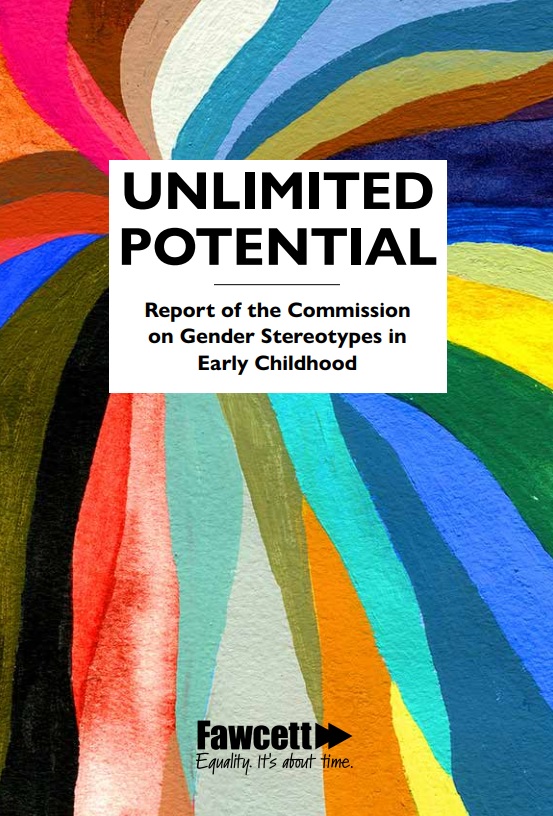
Unlimited Potential, The Fawcett Society (2020)
The final report of the Commission on Gender Stereotypes in Early Childhood sets out how gender expectations significantly limit our children, causing problems such as lower self-esteem in girls and poorer reading skills in boys. The report finds that stereotypes contribute towards the mental health crisis among children and young people, are at the root of girls’ problems with body image and eating disorders, higher male suicide rates and violence against women and girls.
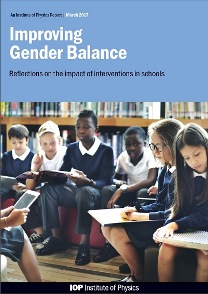
Improving Gender Balance – Reflections on the impact of interventions in schools, Institute of Physics (2017)
Worked with 20 schools in total and trialled school interventions that aimed to:
a) improve the confidence and resilience of girls
b) improve the experience of girls in the physics classroom
c) enable students and staff to understand and address the impact of unconscious bias and gender stereotyping
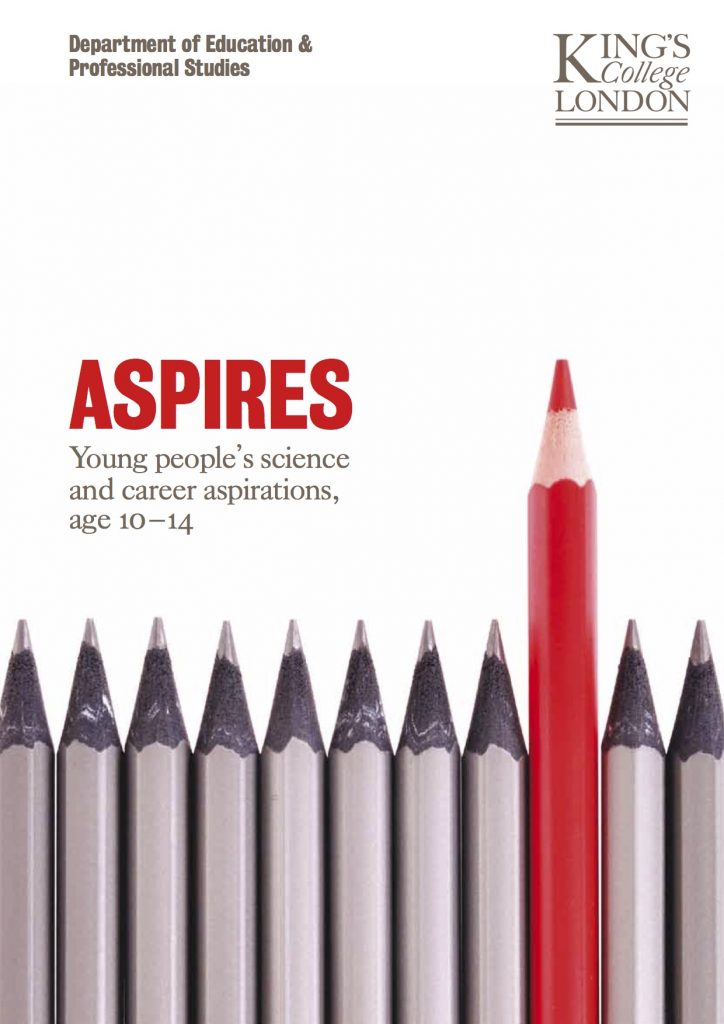
ASPIRES, Young People’s Science and Career Aspirations, age 10-14 (2013)
This longitudinal study by King’s College London examined how young people’s science aspirations develop between the ages of 10-14, with a particular focus on the science aspirations of girls and under-represented ethnic and socio-economic groups.
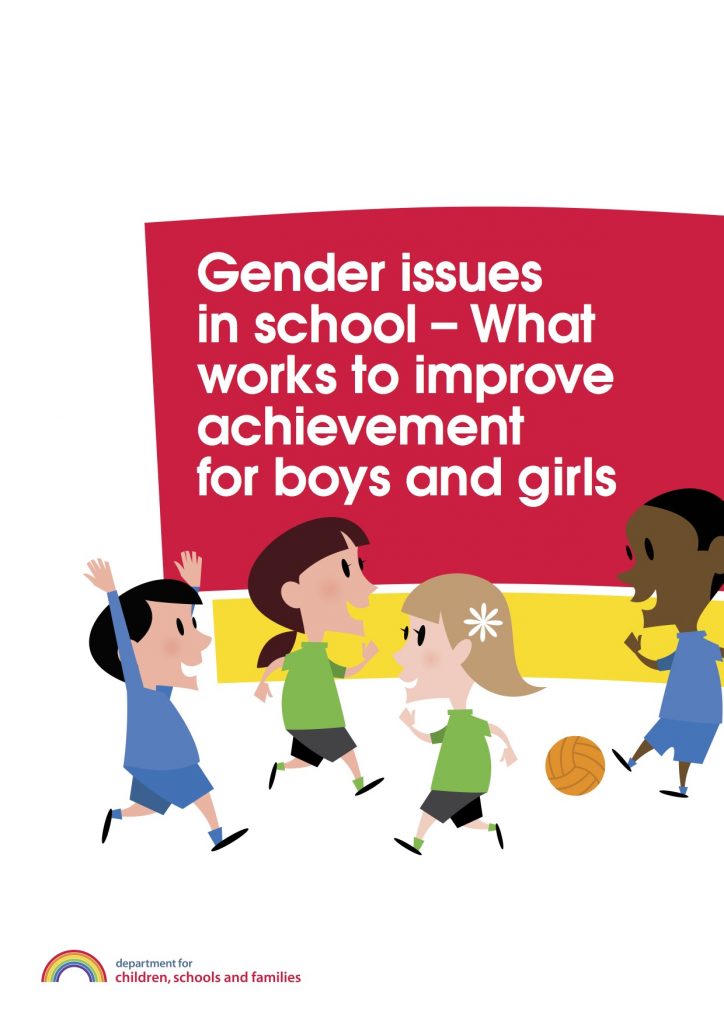
Gender issues in schools – What works to improve achievement for boys and girls, Department for Children, Schools and Families (2009)

Sexual harassment and sexual violence in schools report, Women and Equalities Committee (2016)
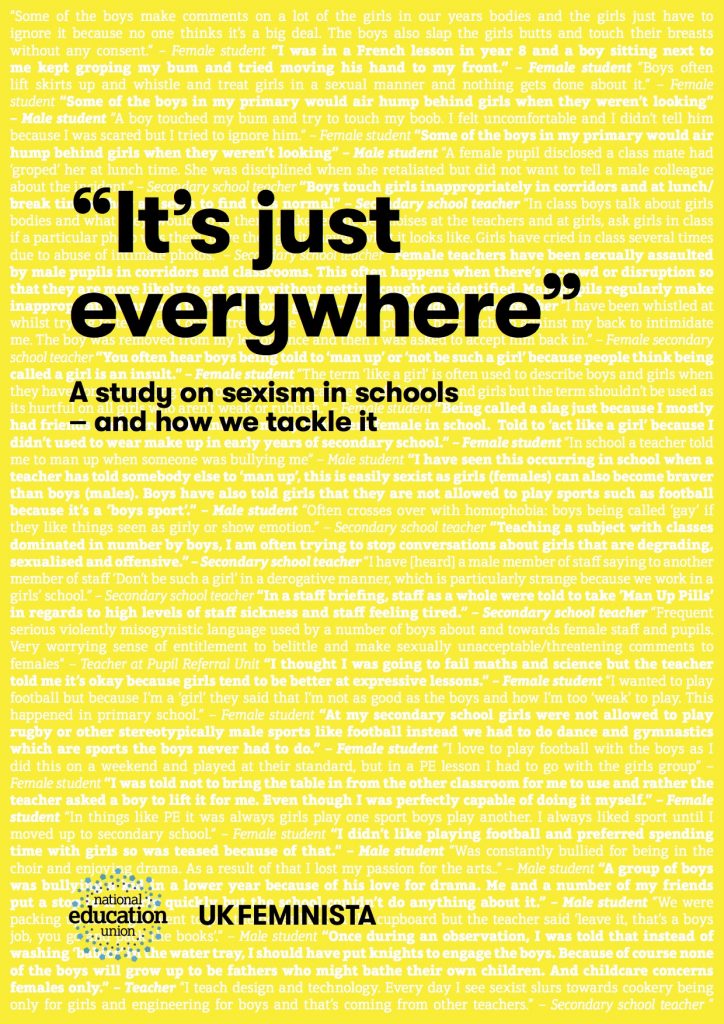
It’s Just Everywhere: A study on sexism in schools – and how we tackle it, National Education Union and UK Feminista (2017)
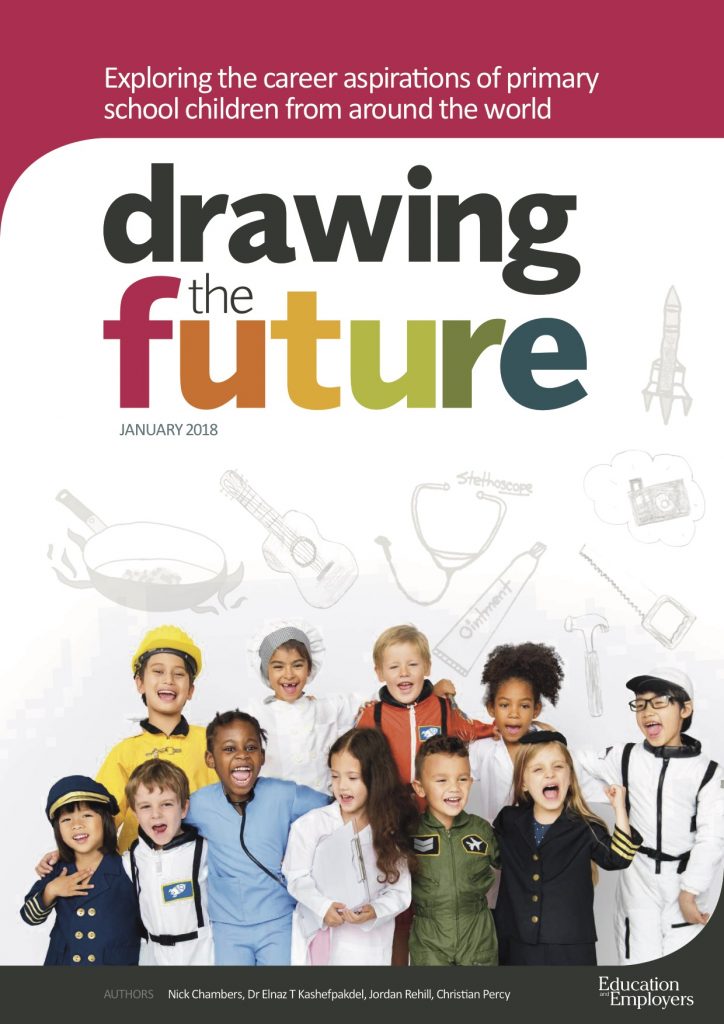
Drawing the Future, Education and Employers, Education and Employers (2018)
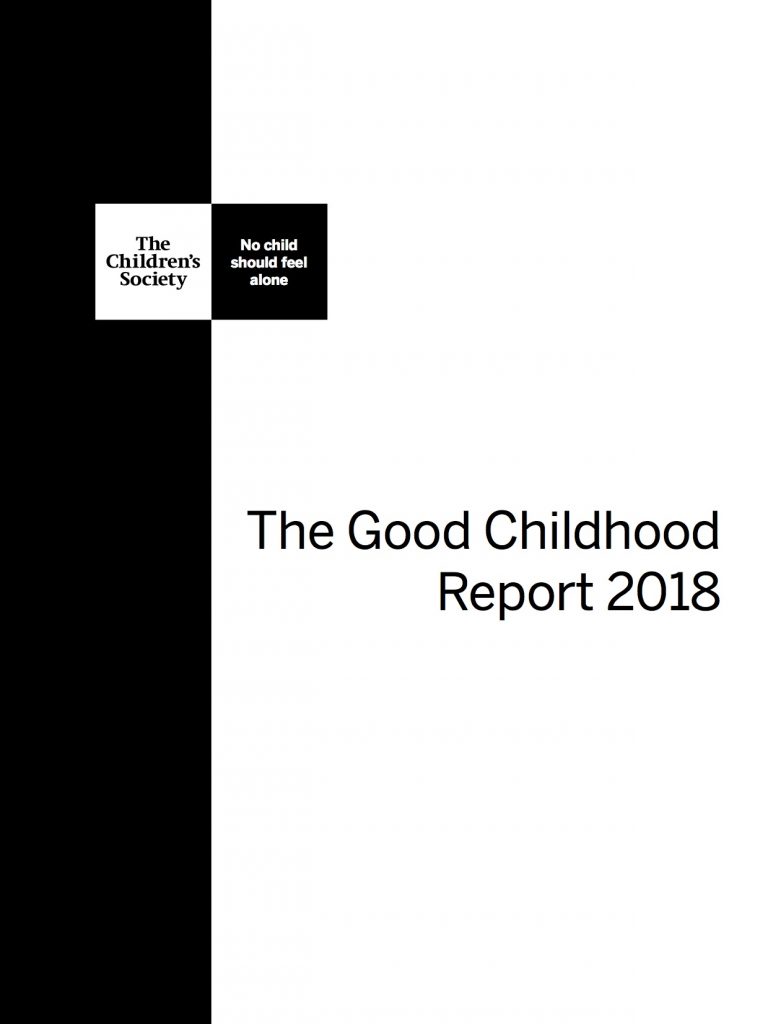
The Good Childhood Report, The Children’s Society 2018

Gender Stereotypes in Early Childhood, a Literature Review, The Fawcett Society (2019)
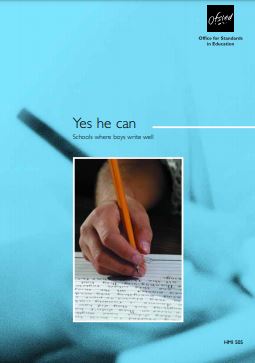
Yes he can: schools where boys write well, Ofsted (2003)
Ofsted identified a ‘non-macho’ school culture as a key factor in schools achieving good standards in boys’ writing.
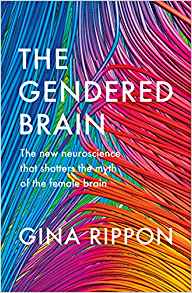
The Gendered Brain, The new neuroscience that shatters the myth of the female brain, Professor Gina Rippon (2019)
You can download and print out a pdf that lists some of these useful sources and evidence, and also links to some of the resources we share with schools as part of the Inset training
